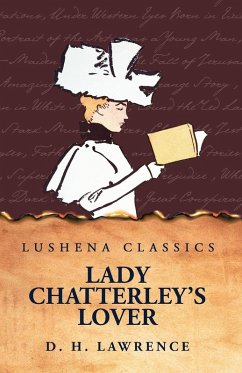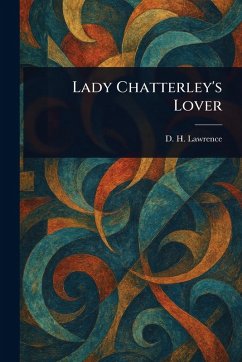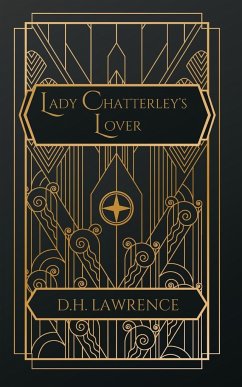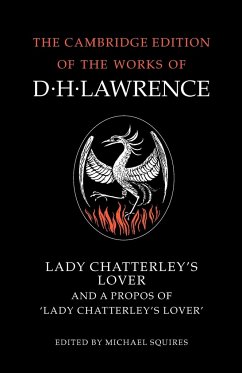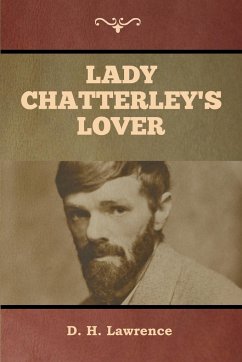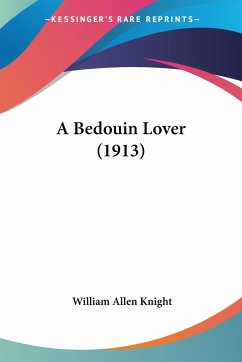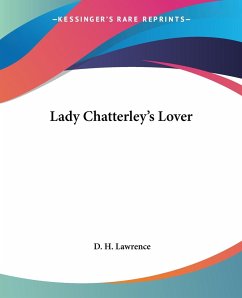
Lady Chatterley's Lover
Versandkostenfrei!
Versandfertig in 1-2 Wochen
32,99 €
inkl. MwSt.

PAYBACK Punkte
16 °P sammeln!
Lady Chatterley's Lover is a novel written by D. H. Lawrence, first published privately in 1928 in Italy and then in 1929 in France. It tells the story of Constance Chatterley, a young and intelligent woman who is married to Sir Clifford Chatterley, a wealthy and aristocratic man. The novel is set in England in the years following World War I and explores themes of love, sexuality, class, and social change.The story begins with Constance living a lonely and unfulfilling life at Wragby Hall, her husband's estate. Sir Clifford has been left paralyzed from the waist down due to injuries sustained...
Lady Chatterley's Lover is a novel written by D. H. Lawrence, first published privately in 1928 in Italy and then in 1929 in France. It tells the story of Constance Chatterley, a young and intelligent woman who is married to Sir Clifford Chatterley, a wealthy and aristocratic man. The novel is set in England in the years following World War I and explores themes of love, sexuality, class, and social change.The story begins with Constance living a lonely and unfulfilling life at Wragby Hall, her husband's estate. Sir Clifford has been left paralyzed from the waist down due to injuries sustained during the war, and their marriage is devoid of physical intimacy. Constance becomes increasingly frustrated and restless, longing for a deeper connection with her husband and a more fulfilling life.When she meets Oliver Mellors, the estate's gamekeeper, Constance is immediately drawn to him. Despite their differences in social class and the fact that Mellors is also married, they begin a passionate and illicit affair. The novel explores their physical relationship and the emotional connection that develops between them as they navigate the challenges of their forbidden love.Lady Chatterley's Lover caused a scandal when it was first published due to its explicit sexual content and frank portrayal of adultery. However, it is now considered a classic of English literature and is celebrated for its exploration of themes that were ahead of their time. The novel is a powerful and thought-provoking exploration of love, desire, and the human experience.Ours is essentially a tragic age, so we refuse to take it tragically. The cataclysm has happened, we are among the ruins, we start to build up new little habitats, to have new little hopes. It is rather hard work: there is now no smooth road into the future: but we go round, or scramble over the obstacles. We've got to live, no matter how many skies have fallen.This scarce antiquarian book is a facsimile reprint of the old original and may contain some imperfections such as library marks and notations. Because we believe this work is culturally important, we have made it available as part of our commitment for protecting, preserving, and promoting the world's literature in affordable, high quality, modern editions, that are true to their original work.



